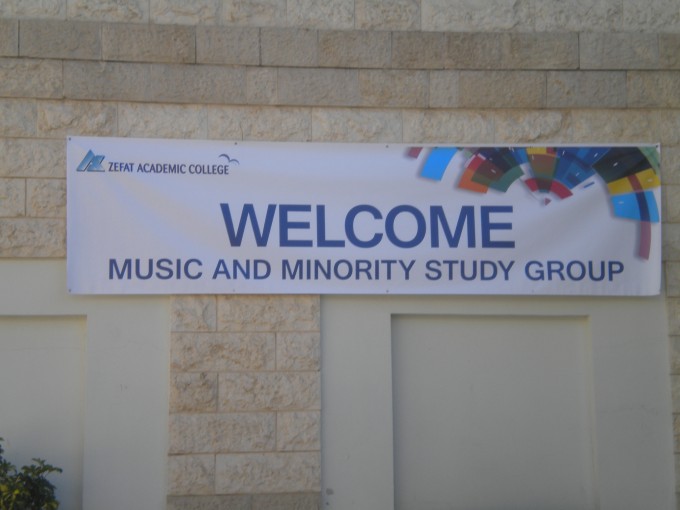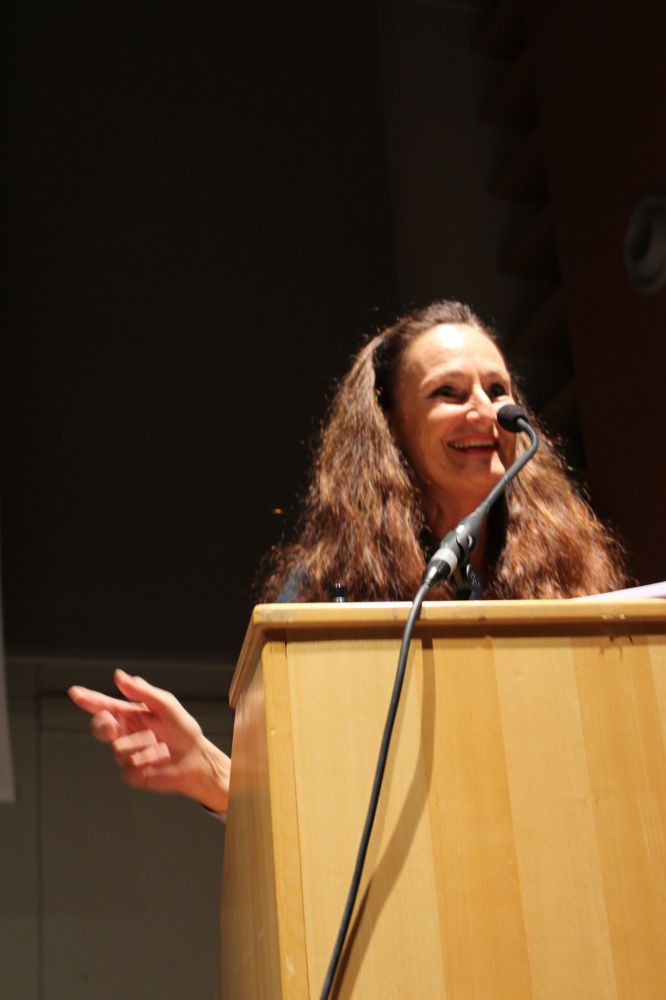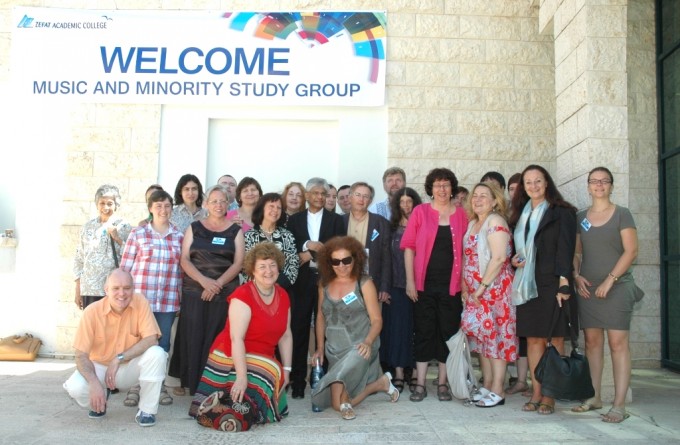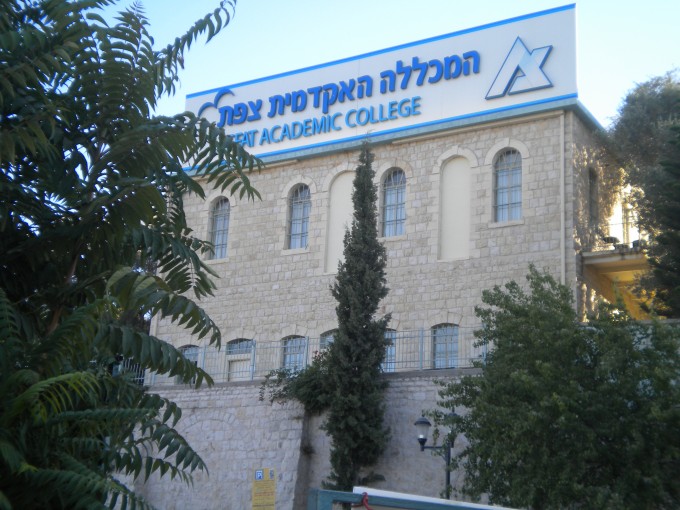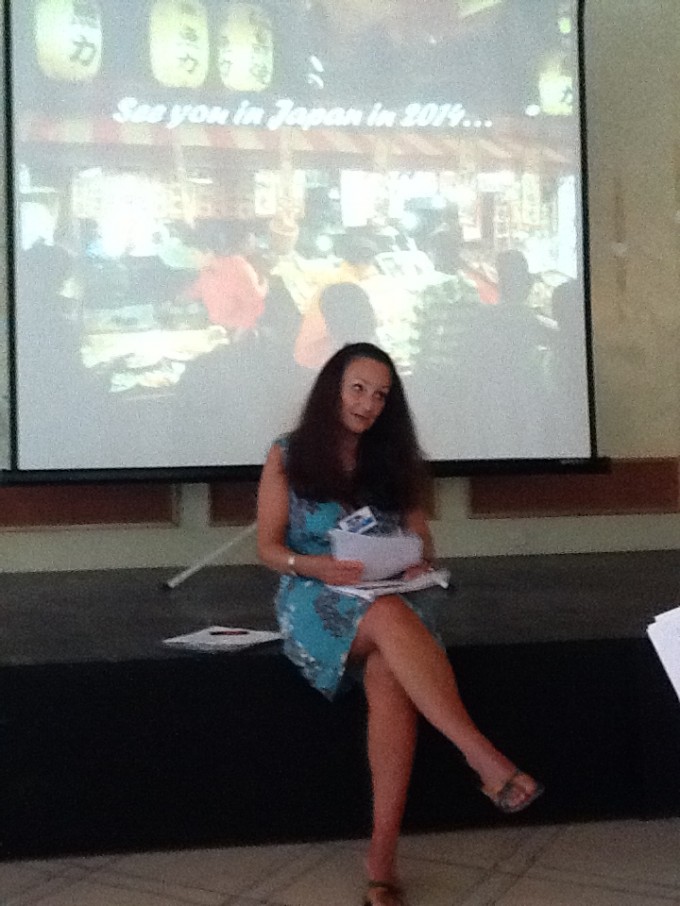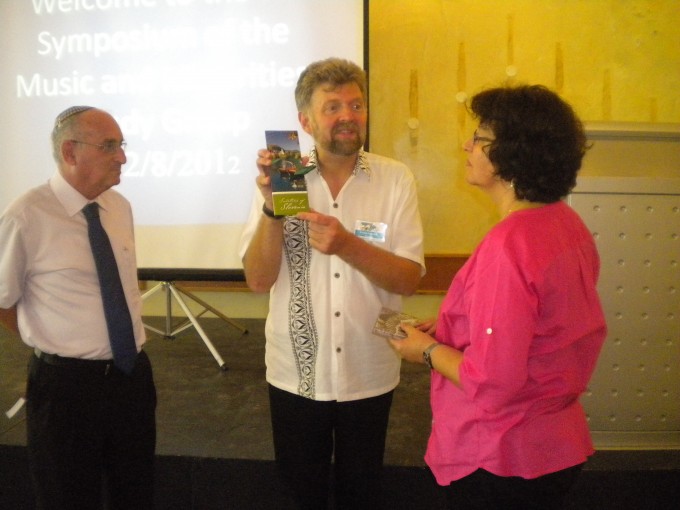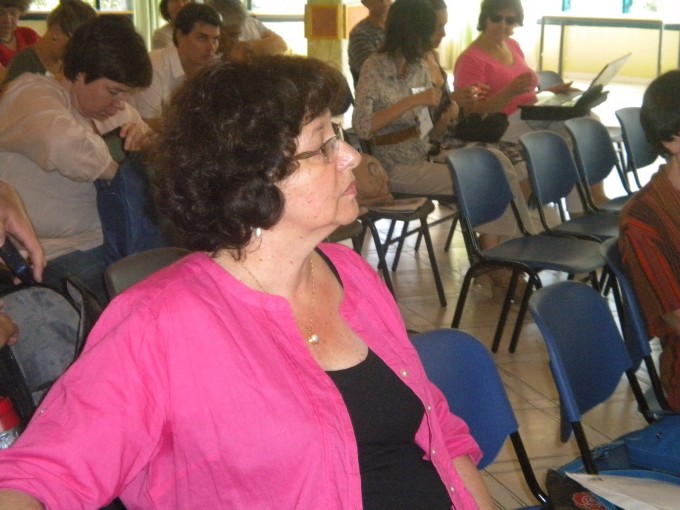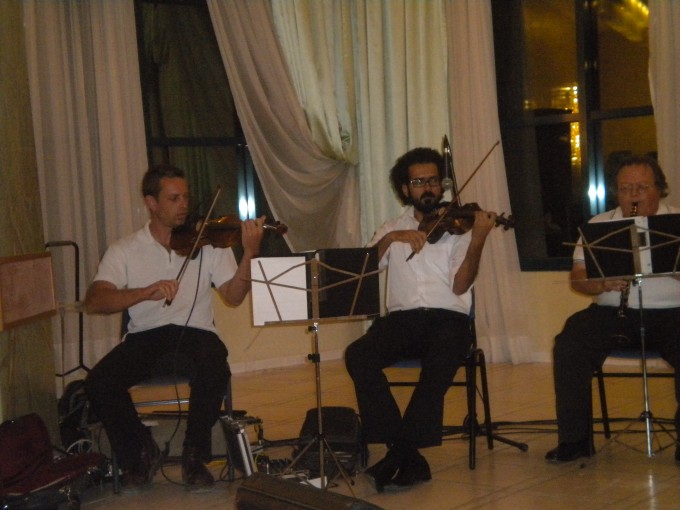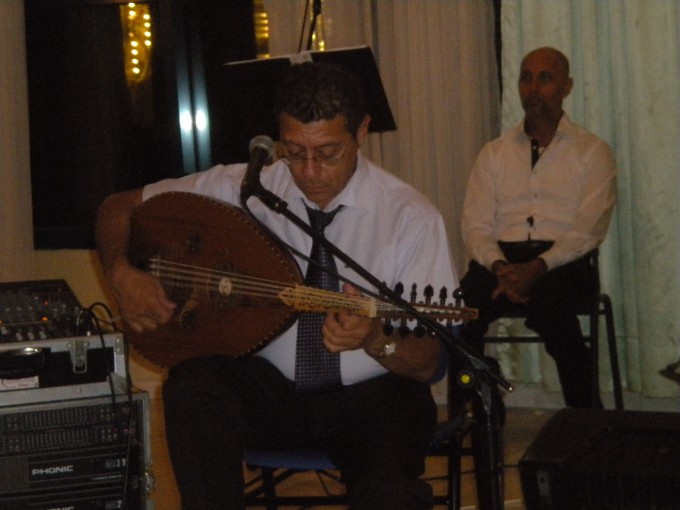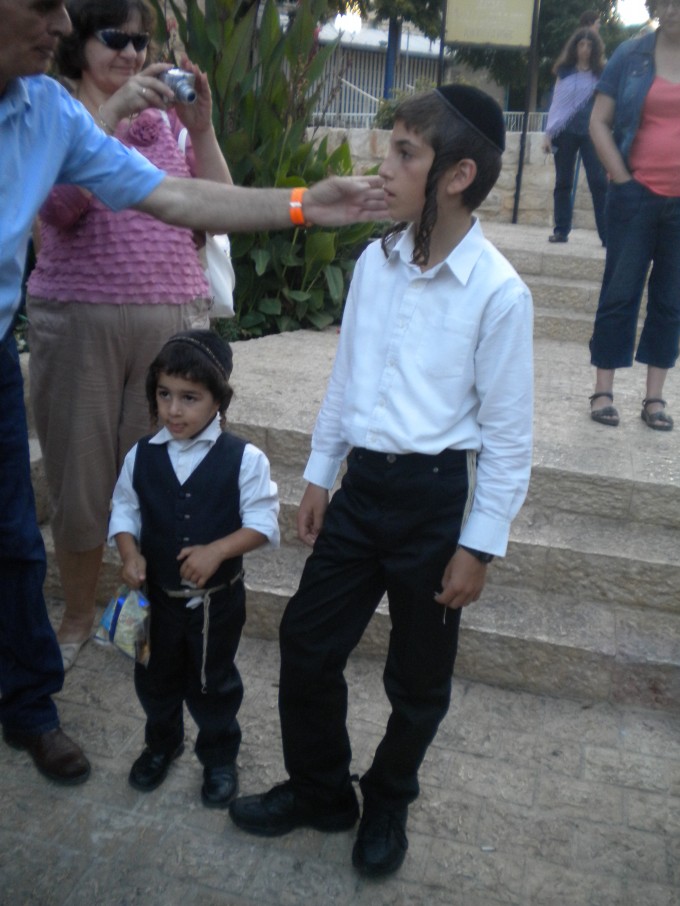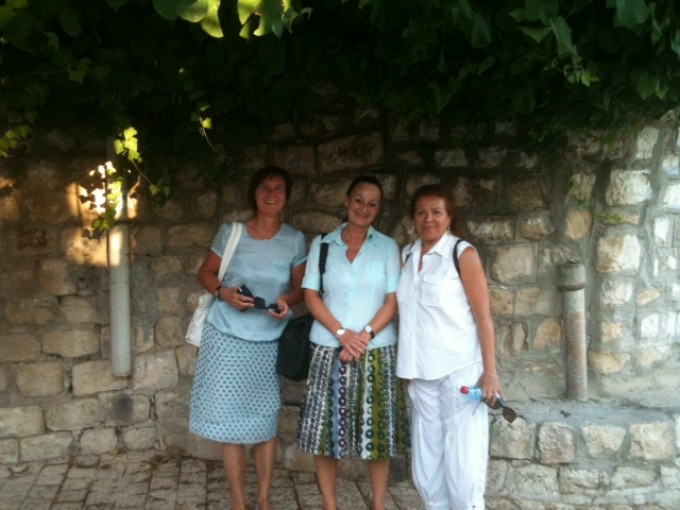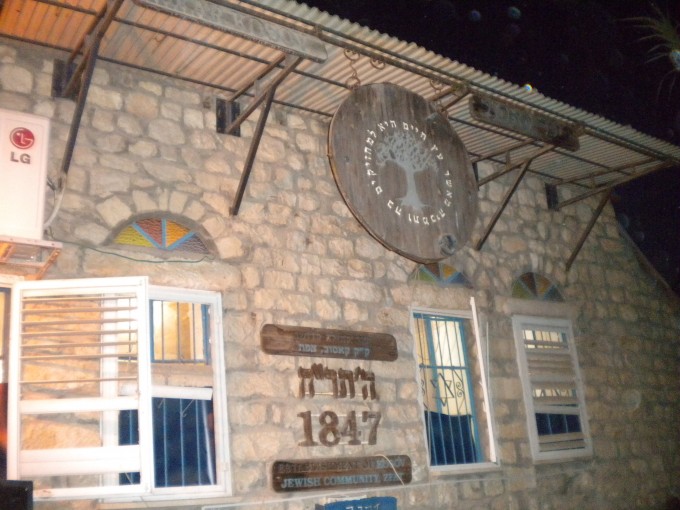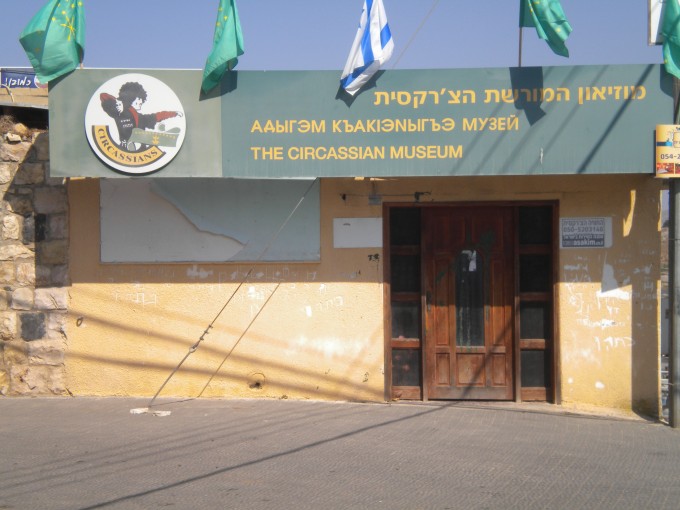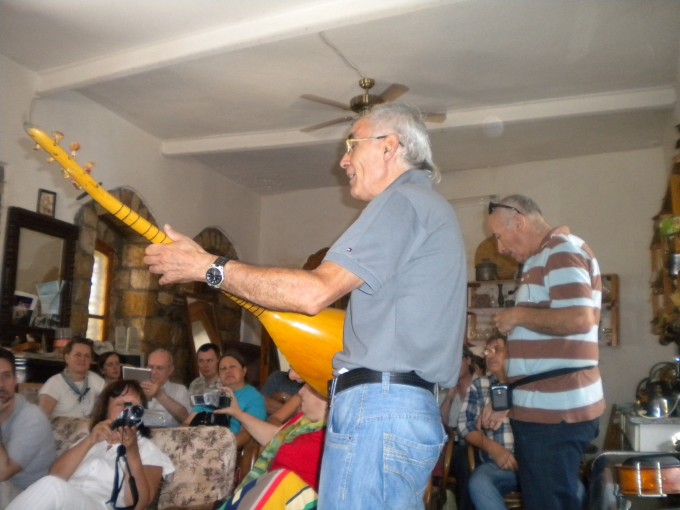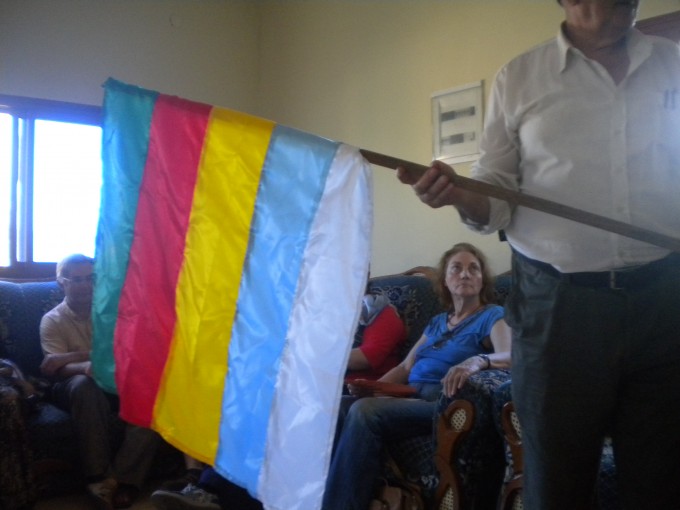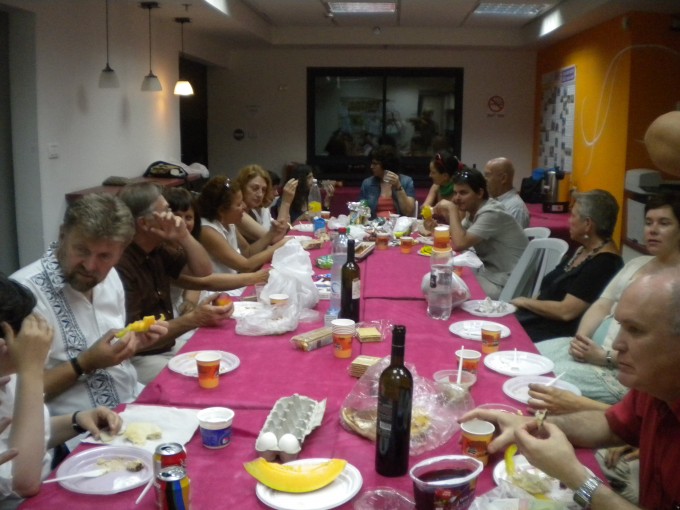2012_Report about the 7th Study Group Meeting “Music and Minorities” in Zefat/Israel
THE SEVENTH SYMPOSIUM OF THE ICTM STUDY GROUP ‘MUSIC AND MINORITIES’
AUGUST 7-12, 2012
ZEFAT, ISRAEL
The seventh symposium of the Study Group ‘Music and Minorities’ was hosted this year by the Academic College of Zefat, Israel. A number of thirty to forty participants from eighteen countries attended the four-day program, which included twenty-five paper presentations, business meetings and discussions, as well as cultural events offered by the hosting organisation.
The symposium presented a selection of four of the aspects of the methodology and study of minority groups culture, and were distributed over the three days of paper presentations and panel discussions.
The four themes were dedicated to:
1. Musical education and cultural identity
2. Methodology in the study of music and minorities
3. Nationalism in music and minorities
4. Representation of minority music in film and video
The first morning was allocated to local-scholars' presentations on cultural aspects and challenges encountered in cultural relations between different ethnic groups living in Israel. The introductory paper (Judith Cohen, Israel) detailed the unique program recently created for the multicultural Academic College of Zefat. Set up for a three-year curriculum, this program ultimately leads to a BA in Literature, Visual Art and Music. Essica Marks spoke about two different methods of teaching Arab music to Arab-Israeli children both being developed and in use at the college.
The musical heritage of Sephardic Jews in France, Poland and Slovakia, Judeo-Spanish musical practices, the Swiss-Jewish minority nationalism expressed through music, and secrecy aspects of the Portuguese Crypto-Jews culture, were included in the symposium. Highlights of the cultural place of the large Arab minority on Israel territory, as well as that of Hadramy Arab music and dance in Singapore, and the rise of cultural identity of Astrakhan Muslims were on the program also.
Various sessions centered on ethnic-racial aspects of the cultural life of diverse minorities and diaspora: the Amami Islands minority of Japan, the Basques struggle for self-determination, the Circassians in Turkey, the Hmong population of Thailand, the Indian and Sri Lankan diaspora in North America and England, the cultural isolation of Kurds in Russia, of Roma in Finland and Slovakia, of Sorbians and Turks in Germany.
New terms emerged from presentations, such as the 'analytical model of “the circulatory flow’”(Terada) and ‘cultural spicing’ (Hilarian). One study group member suggested the change of the traditional term 'minority' as representative statement for the name 'Music and Minorities' adopted by the study group. Recommended alternatives were 'domination and resistance' and 'music and power'. A challenging discussion followed about 'promotion or integration' of a minority and which one has the priority? About preservation of tradition through function and the functional role of tradition through the recurrence of cultural events.
It was generally agreed that the old name of 'Music and Minorities' will continue to be in use.
The official launch of the online publication of a selection of papers from the Hanoi Sixth Symposium in 2010 (edited by Ursula Hemetek) took place at the business meeting of the study group. On this occasion, the publishing of the compendium of articles from participants to the current symposium was discussed, in the hope that the new enterprise will see the light before the eight symposium of the study group 'Music and Minorities', selected to take place in 2014 in Osaka, Japan.
As a lateral observation to this wonderfully organised symposium: it did benefit the students of the Zefat Academic College to attend the symposium and many of them took the opportunity to participate in an international ethnomusicological discourse.
August 2012
Cornelia Buijs-Dragusin

